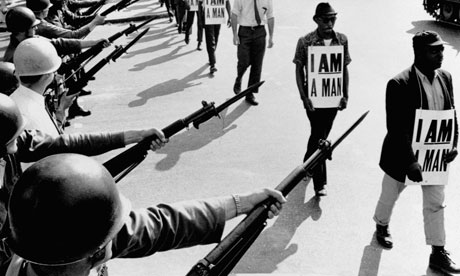 Please join the Theology Workshop for the first session on our Winter Quarter theme: “Embodiment, Sexuality, and Religion.” We will have a presentation by Bryce Rich, PhD student in Theology, and will discuss material from his essay, “Reinterpreting Baptism: An Ongoing Dialogue,” to be published in June as part of a collection entitled, Queering Christianity: Making a Place at the Table for LGBTQI Christians. This session is co-hosted with The Sacred Flame. Kyle Rader, PhD candidate in Theology, will respond.
Please join the Theology Workshop for the first session on our Winter Quarter theme: “Embodiment, Sexuality, and Religion.” We will have a presentation by Bryce Rich, PhD student in Theology, and will discuss material from his essay, “Reinterpreting Baptism: An Ongoing Dialogue,” to be published in June as part of a collection entitled, Queering Christianity: Making a Place at the Table for LGBTQI Christians. This session is co-hosted with The Sacred Flame. Kyle Rader, PhD candidate in Theology, will respond.
DETAILS:
Thursday, January 17th.
12:00-1:30 pm.
Swift 106.
A light lunch will be provided. No preparation by workshop participants is necessary. Persons with a disability who believe they may need assistance, please contact Aaron in advance at athollander@uchicago.edu.
ABSTRACT:
For nearly 45 years the Metropolitan Community Churches (MCC) have brought together people of various faith traditions, socio-economic backgrounds, orientations, and gender expressions in a denomination with a primary ministry to lesbian, gay, bisexual, and transgender (LGBT) people and those who love them. Along the way MCC churches have worked to bridge various divides between Jews and Christians, Sacramentalists and Memorialists, straights and gays, men and women. But in the resulting wealth of theological diversity and practice, questions continue to (re)appear around Baptism. Join us for a look at some of the ongoing theological issues – both theoretical and pastoral – that churches concerned with both sexual and sacramental identity must wrestle with even today. Certainly not isolated issues of the “gay church,” many of these questions are in play wherever traditional distinctions are wearing away in the face of declining denominational identities, the mobility of Christian worshipers, and the call to interact with new realities of human embodiment in society.
Some of the current issues include:
* Open Table practice and its relation to Baptism
* The role of ecumenical dialogue and its importance in articulating denominational theologies and practices
* The relationship between Baptism, the Church as Body of Christ, and local church membership in a denomination that promotes radical inclusivity
* Rebaptism for various reasons including the desires of those who have undergone gender reassignment
* Inclusive language and the Trinitarian baptismal formula
* The continuing tension between pedobaptism and credobaptism
*
Winter Quarter Theme: “Embodiment, Sexuality, and Religion”
In her poem “Cages,” Jane Kenyon writes of our “long struggle to be at home in the body, this difficult friendship.” Indeed, human beings have long wrestled with the meaning of their own embodiment—its pain and pleasure, vulnerability and vitality, creativity and corruptibility. At times the body is a battlefield, the place where violence is enacted, power displayed, suffering endured, enemies confronted. At other times, we sing with Walt Whitman of “the body electric,” a wondrous composition of limbs and lips and great delight. Theologians, too, have long struggled to understand the meaning and cultivation of human embodiment in terms of their respective faiths, interpretations of sacred texts, and doctrinal commitments.
This quarter, the Theology Workshop invites reflection and conversation on questions of embodiment: What does it mean to have a body? How do we, as theologians, scriptural scholars, anthropologists and sociologists, ministerial and medical practitioners—embodied people all!—wrestle with this “difficult friendship” from the perspectives of our own orientations towards or within religion?

 Please join the Theology Workshop for the first session on our Winter Quarter theme: “Embodiment, Sexuality, and Religion.” We will have a presentation by Bryce Rich, PhD student in Theology, and will discuss material from his essay, “Reinterpreting Baptism: An Ongoing Dialogue,” to be published in June as part of a collection entitled, Queering Christianity: Making a Place at the Table for LGBTQI Christians. This session is co-hosted with
Please join the Theology Workshop for the first session on our Winter Quarter theme: “Embodiment, Sexuality, and Religion.” We will have a presentation by Bryce Rich, PhD student in Theology, and will discuss material from his essay, “Reinterpreting Baptism: An Ongoing Dialogue,” to be published in June as part of a collection entitled, Queering Christianity: Making a Place at the Table for LGBTQI Christians. This session is co-hosted with 

 Augustine of Hippo has had a veritable renaissance in modern scholarship, yet in a variety of different ways and disciplines. Together, the Religion & Ethics Workshop and the Theology Workshop are launching their programming this year by bringing together three scholars whose own work has been deeply touched by this figure. Eric Gregory (Princeton), Charles Mathewes (UVA) and Willemien Otten (University of Chicago) have recently produced influential but very different books on Augustine in the last few years. Prof. Gregory has written “
Augustine of Hippo has had a veritable renaissance in modern scholarship, yet in a variety of different ways and disciplines. Together, the Religion & Ethics Workshop and the Theology Workshop are launching their programming this year by bringing together three scholars whose own work has been deeply touched by this figure. Eric Gregory (Princeton), Charles Mathewes (UVA) and Willemien Otten (University of Chicago) have recently produced influential but very different books on Augustine in the last few years. Prof. Gregory has written “
 Talking Queer—Sexual Theology for the Whole Church
Talking Queer—Sexual Theology for the Whole Church